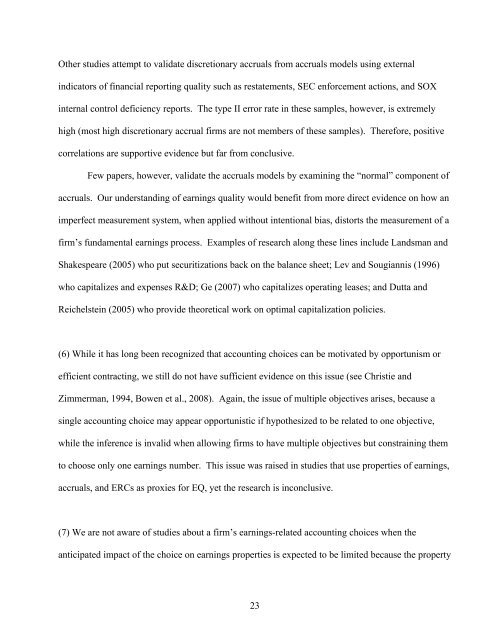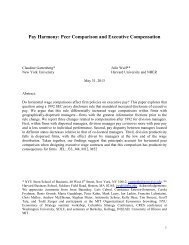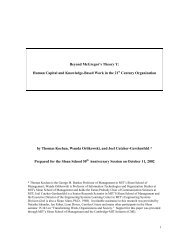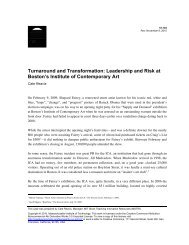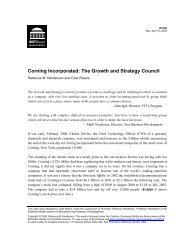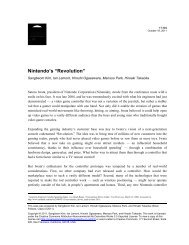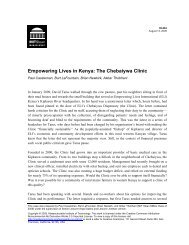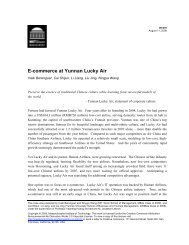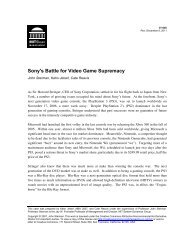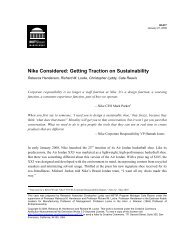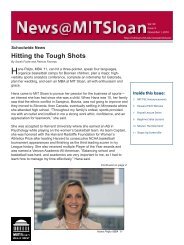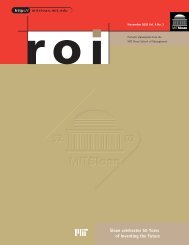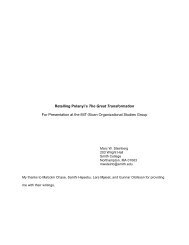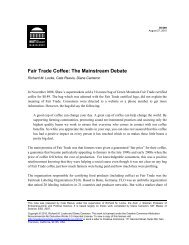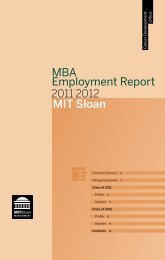Understanding earnings quality - MIT Sloan School of Management
Understanding earnings quality - MIT Sloan School of Management
Understanding earnings quality - MIT Sloan School of Management
You also want an ePaper? Increase the reach of your titles
YUMPU automatically turns print PDFs into web optimized ePapers that Google loves.
Other studies attempt to validate discretionary accruals from accruals models using external<br />
indicators <strong>of</strong> financial reporting <strong>quality</strong> such as restatements, SEC enforcement actions, and SOX<br />
internal control deficiency reports. The type II error rate in these samples, however, is extremely<br />
high (most high discretionary accrual firms are not members <strong>of</strong> these samples). Therefore, positive<br />
correlations are supportive evidence but far from conclusive.<br />
Few papers, however, validate the accruals models by examining the “normal” component <strong>of</strong><br />
accruals. Our understanding <strong>of</strong> <strong>earnings</strong> <strong>quality</strong> would benefit from more direct evidence on how an<br />
imperfect measurement system, when applied without intentional bias, distorts the measurement <strong>of</strong> a<br />
firm’s fundamental <strong>earnings</strong> process. Examples <strong>of</strong> research along these lines include Landsman and<br />
Shakespeare (2005) who put securitizations back on the balance sheet; Lev and Sougiannis (1996)<br />
who capitalizes and expenses R&D; Ge (2007) who capitalizes operating leases; and Dutta and<br />
Reichelstein (2005) who provide theoretical work on optimal capitalization policies.<br />
(6) While it has long been recognized that accounting choices can be motivated by opportunism or<br />
efficient contracting, we still do not have sufficient evidence on this issue (see Christie and<br />
Zimmerman, 1994, Bowen et al., 2008). Again, the issue <strong>of</strong> multiple objectives arises, because a<br />
single accounting choice may appear opportunistic if hypothesized to be related to one objective,<br />
while the inference is invalid when allowing firms to have multiple objectives but constraining them<br />
to choose only one <strong>earnings</strong> number. This issue was raised in studies that use properties <strong>of</strong> <strong>earnings</strong>,<br />
accruals, and ERCs as proxies for EQ, yet the research is inconclusive.<br />
(7) We are not aware <strong>of</strong> studies about a firm’s <strong>earnings</strong>-related accounting choices when the<br />
anticipated impact <strong>of</strong> the choice on <strong>earnings</strong> properties is expected to be limited because the property<br />
23


